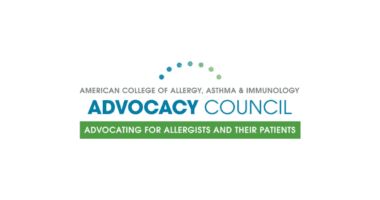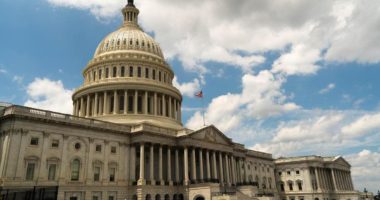Often, insurers do not cover the full cost of out-of-network services. In these situations, individuals are sometimes billed for the difference between the amount charged by the out-of-network provider and the amount their insurance covers. This practice is known as “balance billing” and most often results in a “surprise bill” for the patient.
At the end of 2020, Congress passed the No Surprises Act – bipartisan legislation to protect patients from surprise medical bills for higher amounts than anticipated after receiving care from out-of-network providers or facilities. In July, the Departments of Health and Human Services, Labor, and Treasury (the Departments) published an interim final rule (the Rule) to implement this legislation and protect patients from surprise/balance billing when they receive out-of-network care under certain circumstances. The Rule is set to go into effect beginning Jan. 1, 2022.
Below are key provisions of the Rule and its application to allergists. Although the Rule addresses emergency services and air ambulance services, this article only addresses provisions governing nonemergency care.
Application of the surprise billing rule to allergists
In general, the Rule has limited application to allergists and allergy practices. The Rule applies to certain nonemergency care when it is provided in a health care facility.
What does the Rule do?
The Rule institutes protections for certain patients against surprise billing for nonemergency services furnished by out-of-network providers at in-network health care facilities, as defined in the Rule. Most importantly, for allergists, it would prohibit out-of-network cost-sharing for nonemergency services from being higher than if such services were provided by an in-network doctor.
The Rule also requires providers to make patient protections publicly available, posted on a public website, and to provide a one-page notice to individuals. But, again, this requirement does not apply to health care providers who do not provide services at a hospital, a hospital outpatient department, a critical access hospital, or an ambulatory surgical center or in connection with visits at those facilities.
The Rule is intended to protect participants, beneficiaries, and enrollees in group health plans, group or individual health insurance coverage, and Federal Employees Health Benefits plans. This Rule does not apply to individuals with coverage through programs such as Medicare, Medicaid, the Indian Health Service, Veterans Affairs Health Care, or TRICARE. These federal programs already prohibit balance billing. In addition, the Rule is not meant to supersede applicable state law.
Limited exception to the surprise billing prohibition
The Rule provides an exception to the prohibition against surprise out-of-network billing. In limited circumstances, patients may waive the protections to receive certain nonemergency services at the out-of-network rates, if proper notice and consent requirements are met. Providers wishing to obtain consent must use notice and consent forms and present the forms to the patient within a certain timeframe.
However, many ancillary services connected to nonemergency care, such as anesthesiology, pathology, diagnostic services, and services provided by hospitalists and assistant surgeons may not be waived under the Rule, even with the patient’s consent.
Read the text of the Rule, a consumer-based fact sheet and a more detailed fact sheet.
ACAAI’s Advocacy Council – we have you covered.




